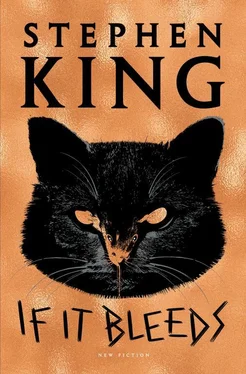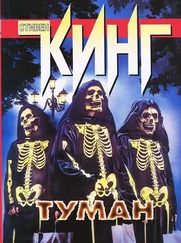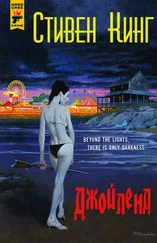He was halfway to Speck’s, waiting at the corner of Main and Spring for the light to change, when the engine arrived. The engine was an image, one as brilliant as reality. Drew stood transfixed and staring at it through the sky. A student gave him a nudge. “Sign says you can walk, man.”
Drew ignored him. The student threw him an odd look and crossed the street. Drew continued to stand on the curb as WALK became DON’T WALK and then WALK again.
Although he avoided western novels (with the exceptions of The Ox-Bow Incident and Doctorow’s brilliant Welcome to Hard Times ) and hadn’t seen many western movies since his teenage years, what he saw as he stood on the corner of Main and Spring was a western saloon. A wagon-wheel chandelier with kerosene lanterns mounted on the spokes hung from the ceiling. Drew could smell the oil. The floor was plank. At the back of the room were three or four gaming tables. There was a piano. The man playing it wore a derby hat. Only he wasn’t playing it now. He had turned to stare at what was happening at the bar. Standing next to the piano player, also staring, was a tall drink of water with an accordion strapped to his narrow chest. And at the bar, a young man in an expensive western suit was holding a gun to the temple of a girl in a red dress so low-cut that only a ruffle of lace hid her nipples. Drew could see these two twice, once where they stood and once reflected in the backbar mirror.
This was the engine. The whole train was behind it. He saw the inhabitants of every car: the limping sheriff (shot at Antietam and still carrying the ball in his leg), the arrogant father willing to lay siege to an entire town to keep his son from being taken to the county seat where he would be tried and hung, the father’s hired men on the roofs with their rifles. Everything was there.
When he came home, Lucy took one look at him and said, “You’re either coming down with something or you’ve had an idea.”
“It’s an idea,” Drew said. “A good idea. Maybe the best one I’ve ever had.”
“Short story?”
He guessed that was what she was hoping for. What she wasn’t hoping for was another visit from the fire department while she and the kids stood on the lawn in their nightclothes.
“Novel.”
She put her ham and cheese on rye down. “Oh boy.”
They didn’t call what happened following the fire that almost took their house a nervous breakdown, but that’s what it was. Not as bad as it could have been, but he’d missed half a semester of school (thank God for tenure) and had only regained his equilibrium thanks to twice-weekly therapy sessions, some magic pills, and Lucy’s unfailing confidence that he would recover. Plus the kids, of course. The kids needed a father who wasn’t caught in an unending loop of must finish and can’t finish .
“This one is different. It’s all there, Lucy. Practically gift-wrapped. It’s going to be like taking dictation!”
She just looked at him, a slight frown creasing her brow. “If you say so.”
“Listen, we didn’t rent out Dad’s cabin this year, did we?”
Now she looked not just worried but alarmed. “We haven’t rented it out for two years. Not since Old Bill died.” Old Bill Colson had been their caretaker, and Drew’s mom and pop’s caretaker before that. “You’re not thinking—”
“I am, but only for a couple of weeks. Three at most. To get started. You can get Alice to help with the kids, you know she loves to come and the kids love their auntie. I’ll be back in time to help you pass out the Halloween candy.”
“You can’t write it here?”
“Of course I can. Once I get a running start.” He put his hands to his head like a man with a splitting headache. “The first forty pages at the cabin, that’s all. Or maybe it’ll be a hundred and forty, it might go that fast. I see it! I see it all!” He repeated, “It’ll be like taking dictation.”
“I need to think about it,” she said. “And you do, too.”
“All right, I will. Now eat your sandwich.”
“All of a sudden I’m not that hungry,” she said.
Drew was. He ate the rest of his, then most of hers.
2
That afternoon he went to see his old department head. Al Stamper had abruptly retired at the end of the spring semester, allowing Arlene Upton, also known as the Wicked Witch of Elizabethan Drama, to finally achieve the position of authority she had so long desired. Nay, lusted for.
Nadine Stamper told Drew that Al was on the back patio, drinking iced tea and taking in the sun. She looked as worried as Lucy had when Drew sprang his idea of going up to the camp in TR-90 for a month or so, and when he went out to the patio, Drew saw why. He also understood why Al Stamper—who had ruled the English Department like a benevolent despot for the last fifteen years—had abruptly stepped down.
“Stop gawking and have some tea. You know you want some.” Al always believed he knew what people wanted. Arlene Upton loathed him in large part because Al usually did know what people wanted.
Drew sat down and took the glass. “How much weight have you lost, Al?”
“Thirty pounds. I know it looks like more, but that’s because I wasn’t carrying any extra to start with. It’s pancreatic.” He saw Drew’s expression and raised the finger he used to quell arguments in faculty meetings. “No need for you or Nadie or anyone else to go crafting any obituaries just yet. The docs caught it relatively early. Confidence is high.”
Drew didn’t think his old friend looked especially confident, but held his tongue.
“Let’s not talk about me. Let’s talk about why you came. Have you decided how you’re going to spend your sabbatical?”
Drew told him he wanted to take another stab at a novel. This time, he said, he was pretty sure he could bring it off. Positive, actually.
“That’s what you said about The Village on the Hill ,” Al said, “and you almost lost the wheels off your little red wagon when that one went south.”
“You sound like Lucy,” Drew said. “I didn’t expect that.”
Al leaned forward. “Listen to me, Drew. You’re an excellent teacher, and you’ve written some fine short stories—”
“Half a dozen,” Drew said. “Call the Guinness Book of World Records .”
Al waved this off. “ ‘Skip Jack’ was in Best American —”
“Yes,” Drew said. “The one edited by Doctorow. Who’s been dead lo these many years.”
“Many fine writers have produced almost nothing but short stories,” Al persisted. “Poe. Chekhov. Carver. And although I know you tend to steer clear of popular fiction, there’s Saki and O. Henry on that side of things. Harlan Ellison in the modern age.”
“Those guys did a lot better than half a dozen. And Al, this is a great idea. It really is.”
“Would you care to tell me a little about it? A drone’s eye view, so to speak?” He eyed Drew. “You don’t. I can see that you don’t.”
Drew, who longed to do exactly that—because it was beautiful! damn near perfect!—shook his head. “Better to keep it in, I think. I’m going up to my father’s old cabin for awhile. Long enough to get this thing rolling.”
“Ah. TR-90, correct? The back of beyond, in other words. What does Lucy say about this idea?”
“Not crazy about it, but she’ll have her sister to help with the kids.”
“It’s not the kids she’s worried about, Drew. I think you know that.”
Drew said nothing. He thought about the saloon. He thought about the sheriff. He already knew the sheriff’s name. It was James Averill.
Al sipped his tea, then put the glass down beside a well-thumbed copy of Fowles’s The Magus . Drew guessed there were underlinings on every page: green for character, blue for theme, red for phrases Al found remarkable. His blue eyes were still bright, but they were also a trifle watery now, and red around the rims. Drew didn’t like to think he saw approaching death in those eyes, but thought maybe he did.
Читать дальше








